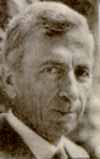Talese to bring focus on 'human, ordinary life' to Penn
The Daily Pennsylvanian
November 12, 1998
-
Talese to bring focus on 'human, ordinary life' to Penn
The Daily Pennsylvanian
"I like to write about the private lives of ordinary people," best-selling author and soon-to-be Penn teacher Gay Talese said yesterday to approximately 25 students and faculty members at the Kelly Writers House.
Decked out in brown pants, a plaid jacket and vest, a pink and white stripped shirt, and a yellow paisley tie, Talese visited the Writers House to discuss his work and his upcoming job as the first Kelly Writers House Fellow. Talese's salary is being paid by Paul Kelly, a wealthy Wharton alumnus who sponsors much of the House's work. Next semester Talese will teach a seminar class at the Writers House focusing on writing creative non-fiction, or factual work that is written stylistically like fiction.
Talese began his professional writing career as a reporter, and although he wrote for the New York Times for ten years, he said he "never was very successful in a journalistic sense." What Talese did like about journalism was the opportunity it gave him to talk to regular people. "I was not interested in what an important person said," he explained. "I cared about human, ordinary life." As a result, Talese left the Times to write best-selling books on a variety of topics: The Kingdom and the Power is about the New York Times newsroom; Honor Thy Father discusses life in the Mafia, and Thy Neighbor's Wife focused on American sexual practices in the 1960s and 1970s. Talese says he writes about real people in his books and claims that he's "never written about anybody that I couldn't call up and see again." But he did note, "if you write about anybody well - that means deep invasions of privacy."
Born into an Itallian-American family in Ocean City, NJ, Talese said that his father was the person who initially piqued his curiosity about the depths of human character. He explained that during WW II, by day his father used to cheer the Allies' victories with the rest of the Ocean City community. But at night he would crouch over a short wave radio listening for news of his brothers, who were fighting against the Allies as part of the Italian army. "I saw two men. I saw an emotional double agent" he said. "I saw how in a little household, a character can be interesting.'
Talese has not made any specific plans for his class yet. It will be limited to 15 to 20 students, who must submit an application explaining why they want to take the class and several writing samples. Additionally, the students will be able to view Talese as "a writer in the middle of a work in progress." He said that he will continue working on his next book, which focuses on a cycle of human life that exists over time within an ordinary building.
Talese also discussed his role models during his speech. One, a teacher who taught a class in French history, was an influential figure during Talese's college days at the University of Alabama. "What I loved about the class was the way he dramatized history," he said. "He had characters." Writers House organizers said they were thrilled both to hear Talese talk and to have him teach at Penn. "I have to say, hearing him talk about his practice made me really want to take the course," said Kerry Sherin, the director of the Writers House. "He's saying to everyone that you can do this too." "We've been working this out for about a year," said Al Filreis, the faculty director of the Writers House.

